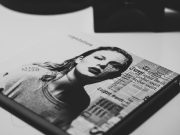Listening to música llanera and singing the “Star Spangled Banner” right before “Gloria al Bravo Pueblo,” the Venezuelan diaspora and some U.S. politicians greeted Venezuelan opposition leader Juan Guaidó at the Miami Airport Convention Center this past weekend.
“Today, this is Venezuela, this is home,” Guaidó told the crowd in Spanish. “With the hope intact to return.” He called for union and hope among the diaspora, while reassuring them that the international community is behind his efforts to remove present leader Nicolás Maduro from power. He also called for freedom not only in Venezuela, but also in Cuba and Nicaragua.
Guaidó’s tour started Jan. 19 in Bogotá, where he met with Colombian President Ivan Duque and U.S. Secretary of State Mike Pompeo. In a summit on terrorism, they discussed Hezbollah cells in Venezuela. Days later, he met with six European leaders: British Prime Minister Boris Johnson, German Chancellor Angela Merkel, Austrian Chancellor Sebastian Kurtz, Dutch Prime Minister Mark Rutte, Greek Prime Minister Kyriakos Mitsotakis and French President Emmanuel Macron.
In Davos, at the World Economic Forum, Guaidó talked about rebuilding the country. Not bad for a man who has spent a year claiming the presidency, but has been held at bay by the Maduro administration.
At his next stop in Madrid, things started to look less stellar, when President Pedro Sánchez, now ruling in coalition with Unidas Podemos (a party with close ties to chavismo), refused to see Guaidó. He then flew to Ottawa, where he met Prime Minister Justin Trudeau, Foreign Affairs Minister Francois-Philippe Champagne and Deputy Prime Minister Crysthia Freeland. Freeland had been one of the more ardent supporters of the Venezuelan cause during her former role as foreign minister. Guaidó hoped to meet with American President Donald Trump next.
That did not happen, and now, the question is why Trump did not see Guaidó. Instead, Trump played golf at his country club in Palm Beach, a one-hour drive from the convention center.
Guaidó said he will go back to Venezuela “in the next few days.” Bloomberg reported that he also met with Florida Senator Marco Rubio before the event.
During Guaidó’s speech, many demanded military intervention. “I hope Guaidó doesn’t do more dialogue,” said attendee Francis Parada, in Spanish.
A bipartisan group of Florida lawmakers welcomed the Venezuelan: Democratic Representatives Donna Shalala, Debbie Mucarsel-Powell and Debbie Wasserman Schultz; Republican Representative Mario Diaz-Balart and Republican Senator Rick Scott. Each legislator affirmed his or her support for freedom in Venezuela and Temporary Protected Status, or TPS, the proposed law that would protect Venezuelans from deportation.
The only one who didn’t mention TPS was Scott, even though the public chanted during his speech for him to support the bill -which passed in the House of Representatives in July but has stalled in the Senate.
Scott did mention Trump’s support for Venezuela over the last year. “Thank you to President Trump for recognizing Juan Guaidó,” he said, in Spanish. “He’s done everything possible to help Venezuela [and] to ensure that Maduro gets out of power.”
Before the event, three women stood in front of the convention center with posters calling Guaidó an estafador, or swindler, and a socialist. People in line told them to “go to Venezuela and Cuba” and asked them how much the Maduro regime had paid them for showing up at the event.
This story was adapted from a piece in the Caracas Chronicles.
































